"The world of science needs to participate more strongly in the political dialogue"
From 5th until 8th September 2017, the University of Bern hosted the fourth International Conference on Research for Development (ICRD). With the motto of "Evidence. Engagement. Policies", some 300 conference participants from all over the world discussed the challenges and opportunities presented by global sustainable development. Peter Messerli, Co-Director of the interdisciplinary Centre for Development and Environment (CDE) at the University of Bern, called for the world of science to participate more strongly in the political dialogue.
The goal of the event was to hold a discussion between the worlds of research, politics and practice in the interests of better incorporating scientific knowledge in political decision making processes and supporting the realisation of the "Agenda 2030 for Sustainable Development" of the United Nations. At the heart of the conference were four keynote debates and three plenary discussions which addressed the following topics: partnerships for sustainable development, the financing of sustainable development, the governance of natural resources, in addition to health, migration and global justice.
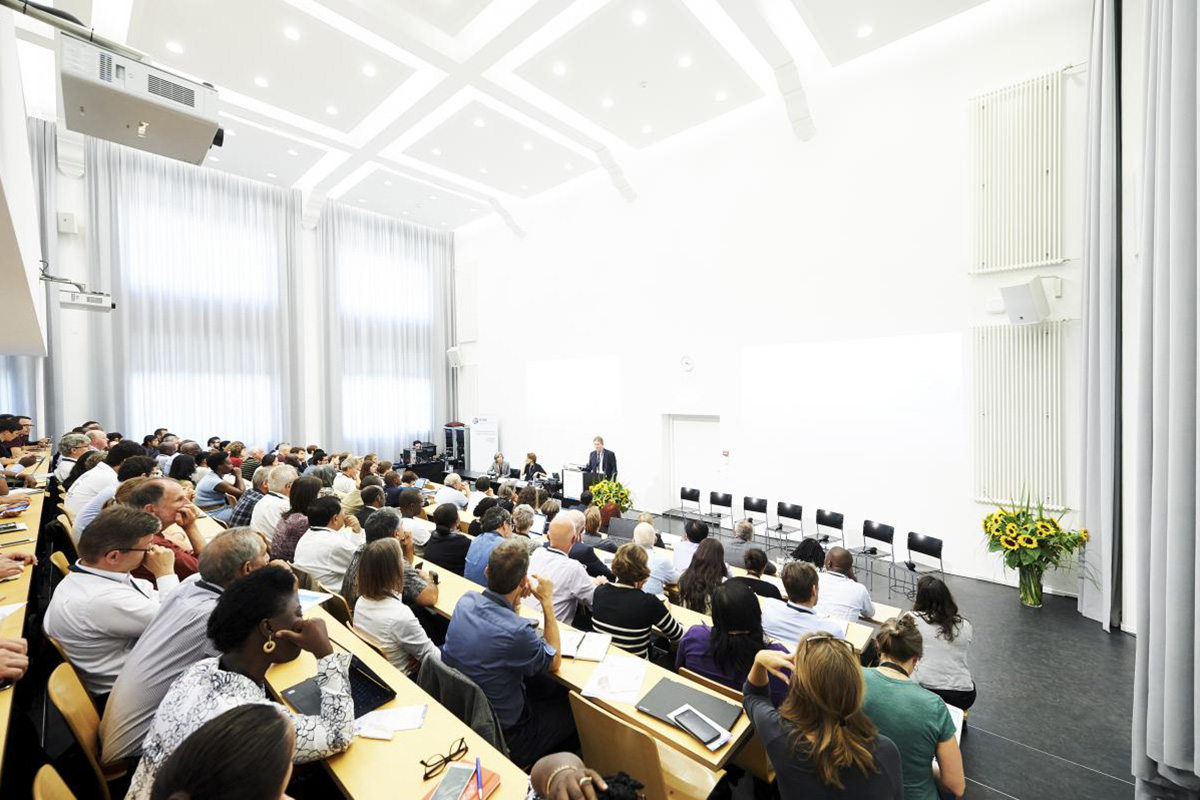
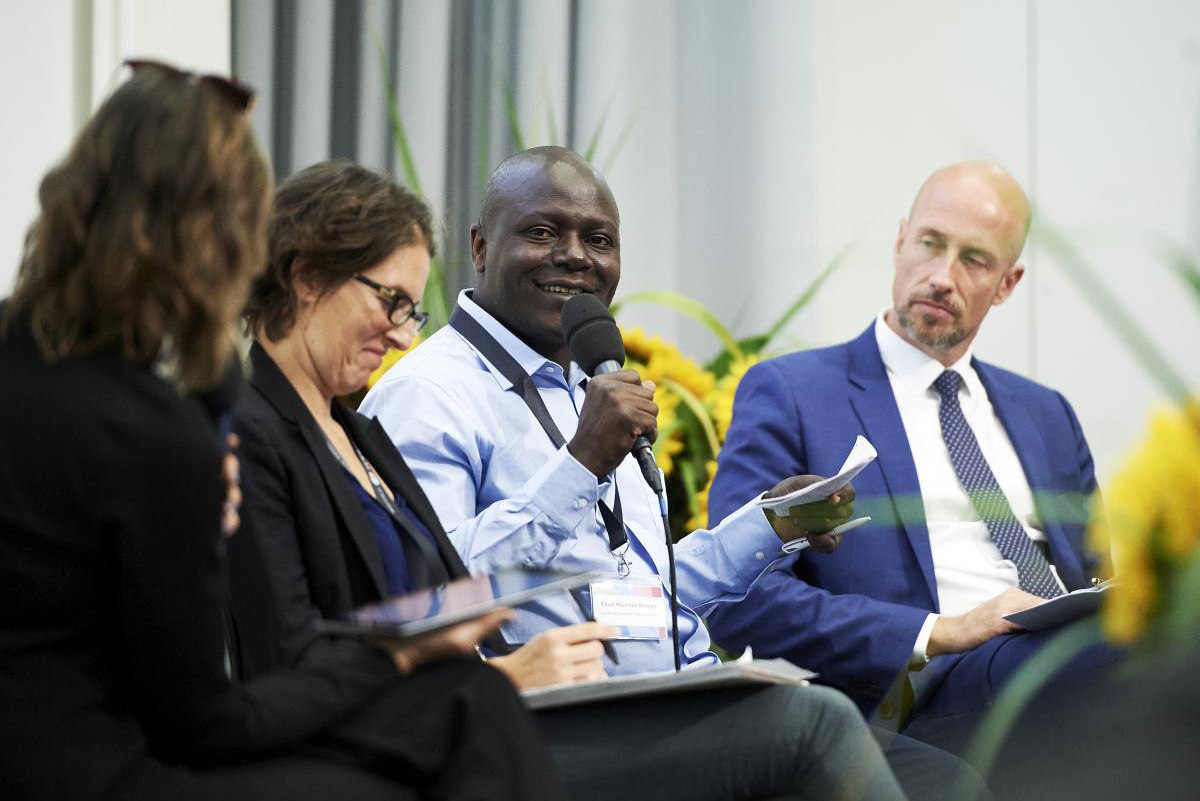
On 25th September 2015, the UNO summit meeting officially approved "The Agenda 2030 for Sustainable Development". It is supported by the entire international community. The key element of the Agenda 2030 is its 17 Sustainable Development Goals (SDGs). The 17 goals take the social, environmental and economic dimensions of sustainability into account for the first time.
Bridging the gap between science and society
Those attending the conference agreed that the successful realisation of the Agenda 2030 will only be possible on the basis of both partnerships and a successful dialogue between the worlds of politics, science, civil society and business. "Researchers need to work together with all of the affected participants in the interests of developing shared approaches for the realisation of the Agenda 2030," highlighted Esther Mwangi of Kenya at the ICRD conference. Mwangi is a Scientist at the Centre for International Forestry Research (CIFOR).
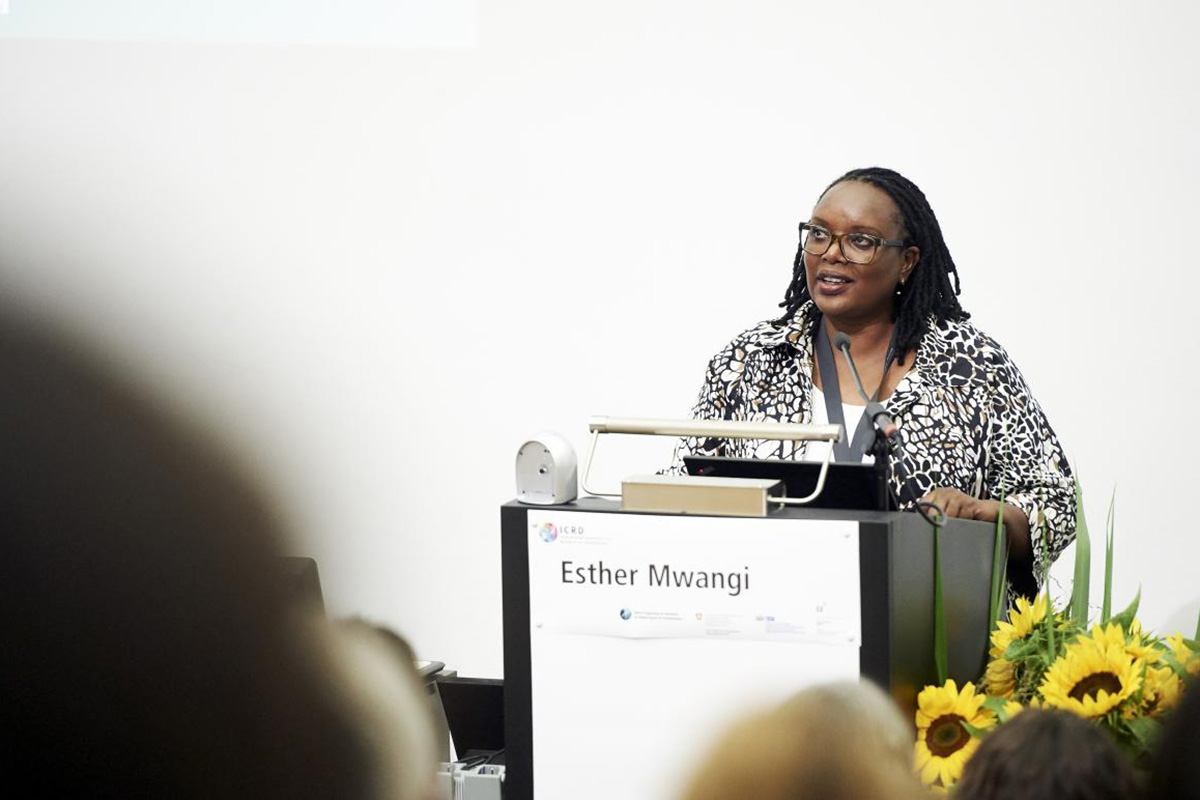
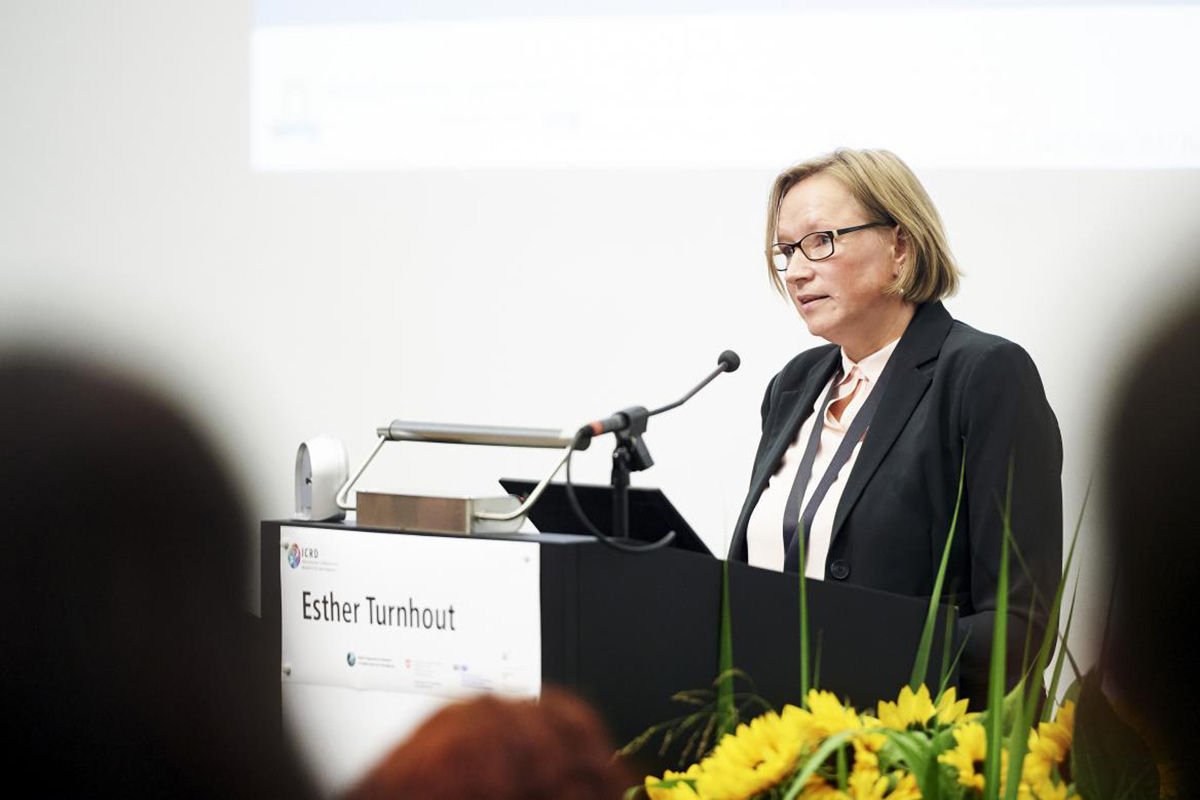
Esther Turnhout, Professor of Forest Protection and Nature Conservation at the Dutch University of Wageningen, noted that the world of science is running the risk of losing its grip with reality, a situation that it actually wants to improve. "Not only does the world of science need to show more commitment, it also needs to be more aware of the political importance." The world of science also needs to consider whose interests it is serving with its research. In this respect, critical reflection is required on research questions, which must include a greater orientation to social needs.
5 to 7 billion Swiss Francs per year for sustainable global development
To successfully realise the Agenda 2030, a comprehensive and constant funding basis will be necessary. The government funding made available for development aid is not sufficient for being able to raise the 5 – 7 billion Swiss Francs which need to be invested every year so as to ensure the successful realisation of the Agenda 2030. "Stronger involvement on the part of private sector and the advancement of public-private funding models are both essential," highlighted Michael Gerber, Ambassador and Envoy for Global Sustainable Development at the Swiss Federal Department of Foreign Affairs (DFA). The mobilisation of domestic resources as a source of funding is also of key importance. It is for this purpose that the Agenda 2030 aims to strengthen national systems of taxation and intensify the international cooperation in the prevention of tax avoidance and money laundering.
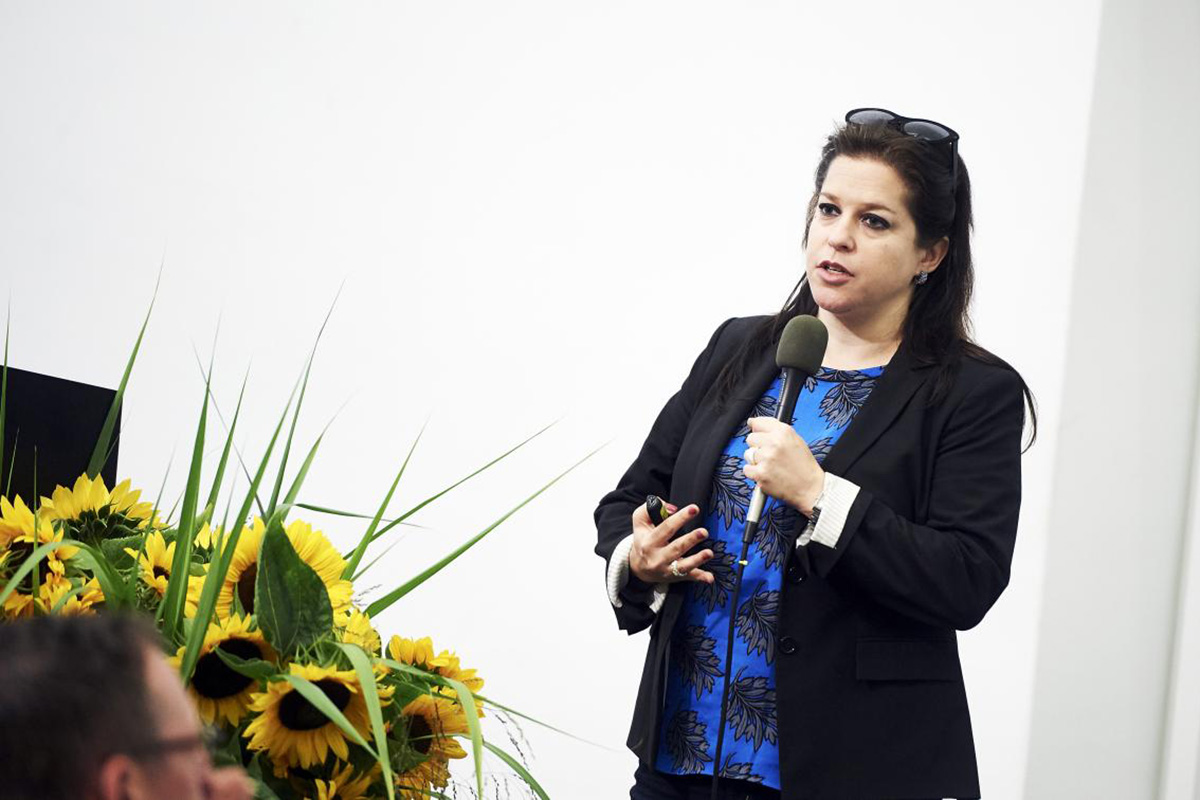
In her lecture, Dina Pomeranz, Assistant Professor of Economics at the University of Zürich, explained that many developing countries had made considerable progress in tax-related issues. Many countries have succeeded in increasing their tax receipts and fighting tax avoidance, which has also contributed to making funding available for their development goals.
Developing research partnerships across borders
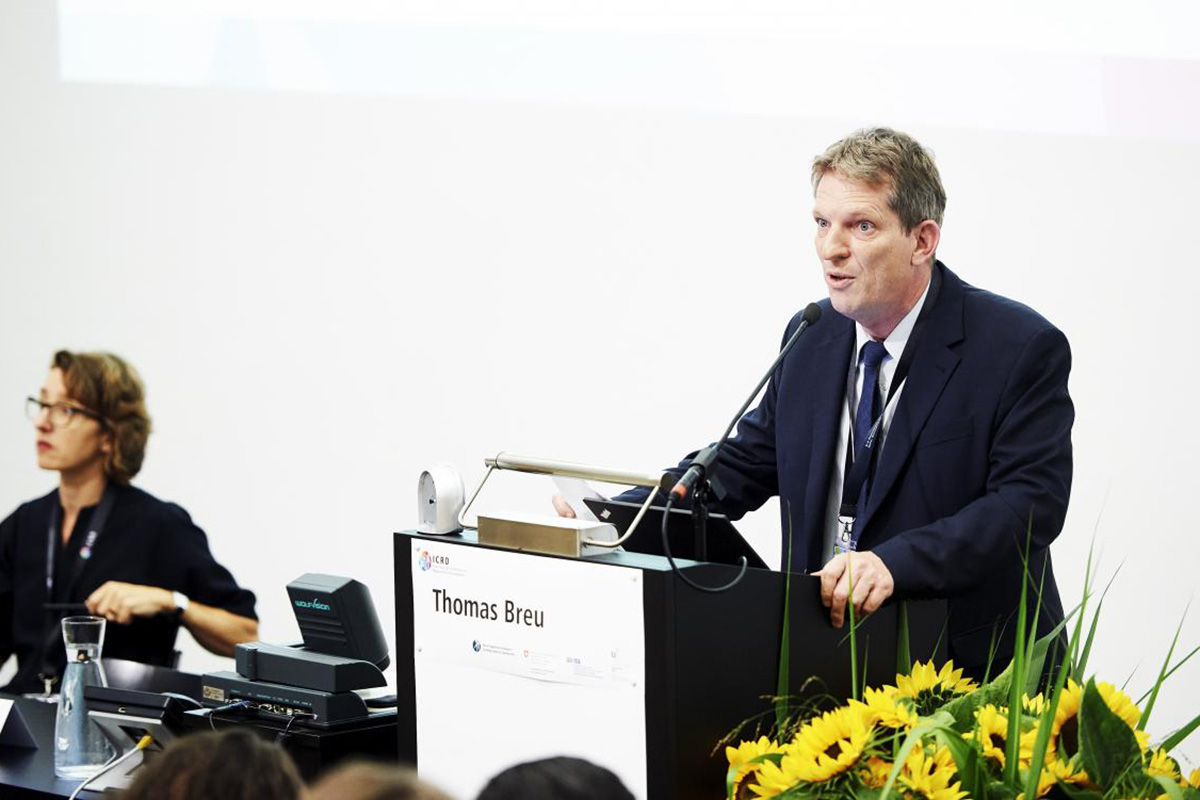
Dealing with the complex challenges which will arise during the realisation of the Agenda 2030 requires both new patterns of thinking and working models: things to which the world of science is able to make a major contribution. "Investments in long-standing research partnerships with developing countries are the best way of making knowledge rapidly available for negotiating, learning and decision-making processes," emphasised Thomas Breu, Conference Chairman and Co-Director of the Centre for Development and Environment (CDE) at the University of Bern. Together with the Swiss National Fund, the Swiss Agency for Development and Cooperation (SDC) has, along with other initiatives, supported such research partnerships, which extend beyond disciplines and national boundaries for several decades, with the "Swiss Programme for Research on Global Issues for Development (r4d)".
A paradigm change: from a descriptive to a transformational form of science
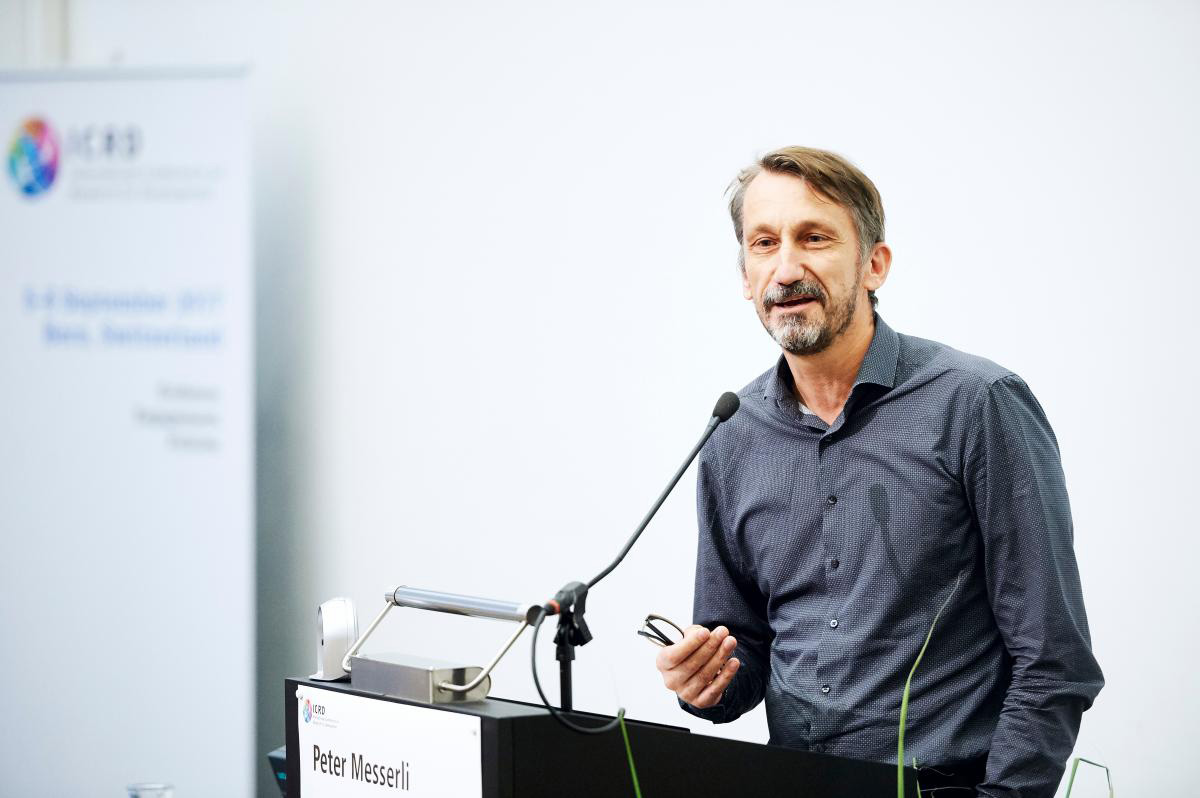
In his closing speech, Peter Messerli, Co-Director of the CDE, summarised the key findings of the conference: "The Agenda 2030 requires fundamental social change. The world of science must rise to the new challenges and aim to achieve a paradigm change from a descriptive to a transformational form of science." The world of science should participate more strongly in the political dialogue. Both researchers and financial donors will have to take further risks, which includes engaging with politically sensitive issues. Science must become accessible to everyone and correspond to the social needs.

CONFERENCE ON RESEARCH FOR DEVELOPMENT (ICRD)

The ICRD conference was originally launched in 2004 by the National Centre of Competence in Research (NCCR) North-South. The ICRD 2017 is the fourth in the series and is based on the accomplishments of the earlier conferences. It was organised by the Swiss Programme for Research on Global Issues for Development (r4d programme) the directorate of the Swiss Agency for Development and Cooperation (SDC), the Swiss National Science Foundation (SNSF), and the Interdisciplinary Centre for Development and Environment (CDE) at the University of Bern. The goal of the conference was to advance the discussion between the worlds of research, politics and practice and to encourage the learning of different perspectives and the discussion of innovative approaches. On this basis, scientific findings can be better incorporated within political decision-making processes, and the realisation of Agenda 2030 should be supported.
CENTRE FOR DEVELOPMENT AND ENVIRONMENT (CDE)
CDE is Switzerland's centre of excellence for sustainable development. One of the University of Bern’s strategic research centres, we are tasked with mainstreaming sustainability throughout the university’s research and teaching. In coordination with the global sustainable development goals stipulated in Agenda 2030, the CDE formulates proposed solutions and initiates processes of transformation which distribute the gains and risks of globalisation more fairly, protect natural resources, and support global well-being. The CDE employs some 100 employees from 17 disciplines and is active in five regions of the global south as well as Switzerland and Europe. The CDE is currently realising 50 projects with an annual turnover of more than CHF 15 million. Teaching and education form an important part of the work of the CDE. The CDE offers teaching programmes in the field of sustainable development at the bachelor's, masters, doctorate and postgraduate levels, and currently has more than 500 students.
ABOUT THE AUTHOR
Corina Lardelli is Director of Communications at the Centre for Development and Environment (CDE) at the University of Bern.